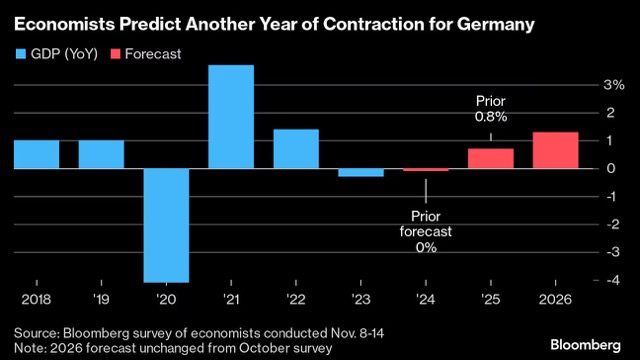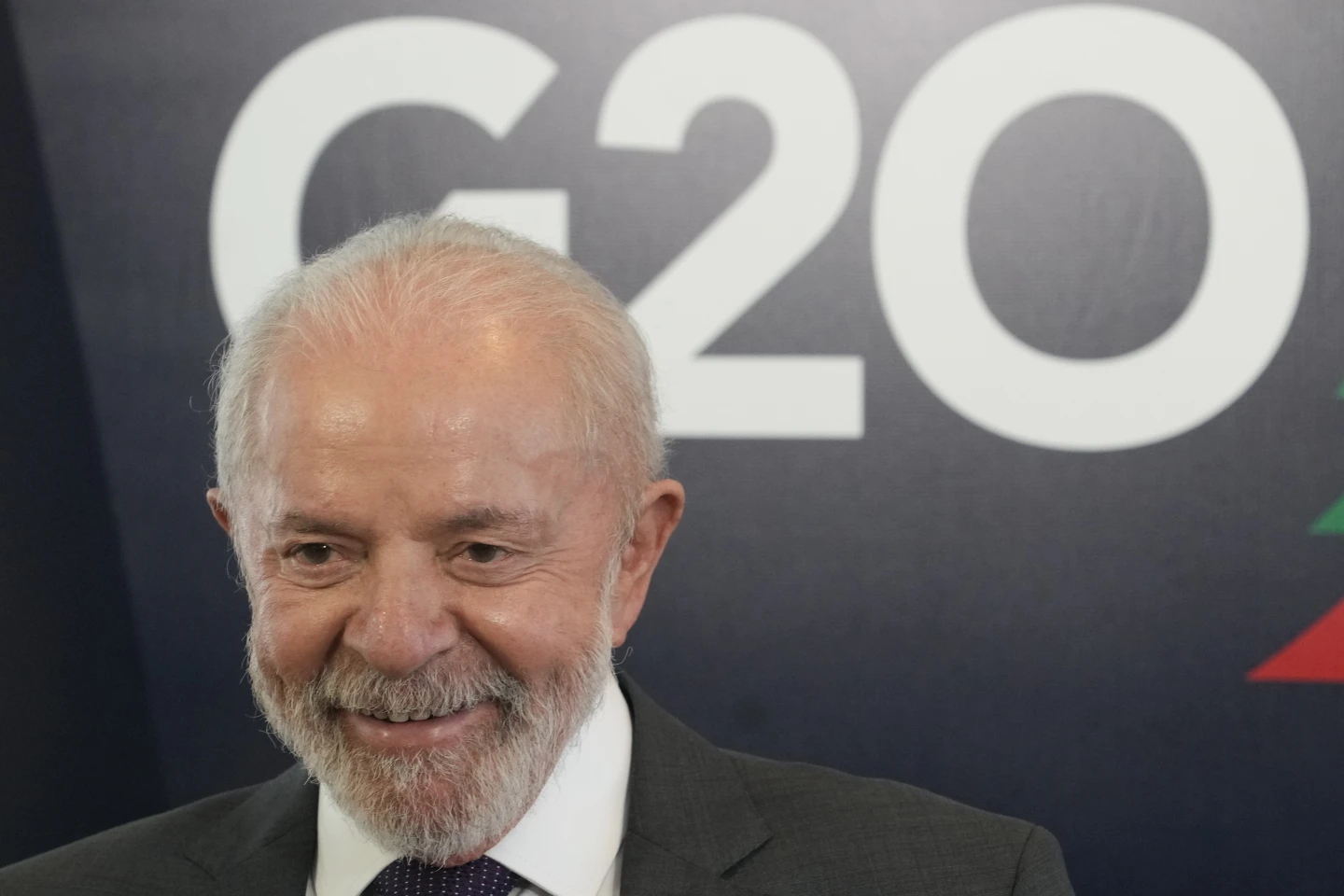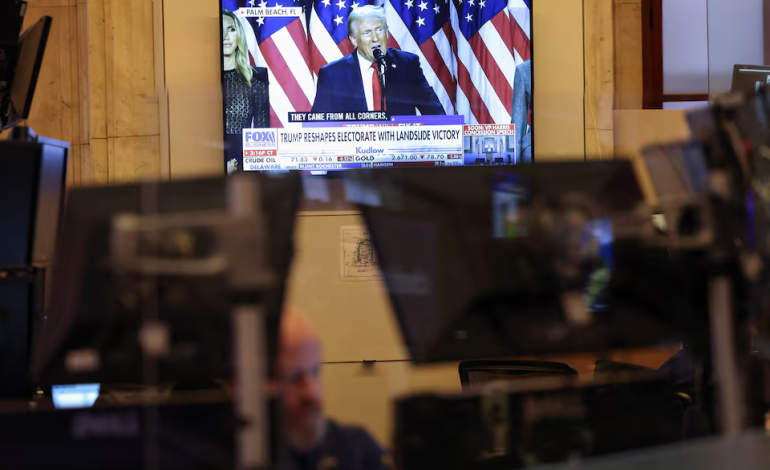The post-election stock rally sparked by Donald Trump’s victory has encountered some turbulence recently, but many analysts remain optimistic about the long-term potential of his economic policies, which continue to fuel optimism in key sectors of the market.
Since the election, the S&P 500 has dropped by 2%, erasing more than half of the post-election surge driven by expectations of Trump’s pro-growth economic platform. However, despite recent setbacks, the index remains near record highs and is up 23% this year, demonstrating the enduring strength of the market. While it’s clear that challenges exist, these fluctuations may simply be temporary adjustments as the market processes the potential impact of Trump’s policies.
Trump’s economic agenda, which includes tax cuts, deregulation, and tariffs designed to bolster American manufacturing, continues to inspire confidence. His promises to cut red tape, incentivize businesses to invest in US infrastructure, and create a competitive environment for American industries have drawn positive attention from investors. These initiatives could be the key drivers of economic growth in the years ahead, positioning the US economy for a sustained expansion.
The recent surge in US Treasury yields—reaching their highest levels in over five months—has been one of the factors contributing to the stock market’s volatility. This rise has been partially attributed to concerns that Trump’s policies could stoke inflation, which could, in turn, lead to higher interest rates. While this scenario poses challenges for equities, it is important to remember that these higher yields reflect strong economic growth, something that Trump’s policies are designed to promote.
Economists are closely watching how Trump’s administration plans to handle inflation, which many view as an inevitable side effect of his aggressive fiscal policies. While inflation could potentially lead to tighter monetary conditions, Trump’s stance on tariffs, particularly with China and the European Union, aims to reduce the trade deficit and revitalize US manufacturing, which could ultimately pay dividends in the form of economic expansion and job creation.
Despite uncertainty surrounding some of Trump’s cabinet appointments, particularly within the pharmaceutical and defense sectors, the overall market sentiment remains positive. Companies like Pfizer and Moderna, which saw their shares drop following the appointment of Robert F. Kennedy Jr. as the head of the Department of Health and Human Services, are adjusting to the evolving political landscape. Similarly, defense contractors are bracing for potential changes as Trump seeks to streamline government operations, though his focus on deregulation and tax cuts could offer new opportunities for growth in these industries.
While some investors have been quick to react to short-term uncertainties by pulling back, others are taking a longer-term view. The uncertainty surrounding the timing and scope of Trump’s policies is creating opportunities for those willing to take a calculated risk.
“The market had rushed to price in the positive outcomes from Trump’s economic policies. I’m skeptical it will be that easy, but the fundamentals are still strong,” Paul Nolte, senior wealth adviser at Murphy & Sylvest Wealth Management noted.
For now, the rally may have cooled, but the broader economic fundamentals remain robust. Corporate earnings are strong, with growth expected to continue as businesses capitalize on the pro-business policies of the Trump administration. Moreover, stocks have historically performed well in the final months of presidential election years, offering additional reason for optimism as the year draws to a close.
Importantly, some sectors of the market continue to thrive under Trump’s influence. Companies like Tesla, which have benefitted from the president-elect’s close ties to CEO Elon Musk, have seen substantial gains. Tesla shares are up 28% since Election Day, as investors anticipate favorable outcomes for the electric vehicle maker. Additionally, Bitcoin has surged by more than 30%, buoyed by expectations of deregulation in the cryptocurrency space under Trump’s leadership.
Looking ahead, the impact of Trump’s policies on both the US and global markets will take shape over time. While risks remain, particularly in relation to trade tensions and potential inflationary pressures, the foundation for growth is strong. As strategists at Baird Private Wealth Management point out, “There is a lot else working for the market,” including strong corporate earnings, a healthy growth backdrop, and the potential for further economic expansion.









